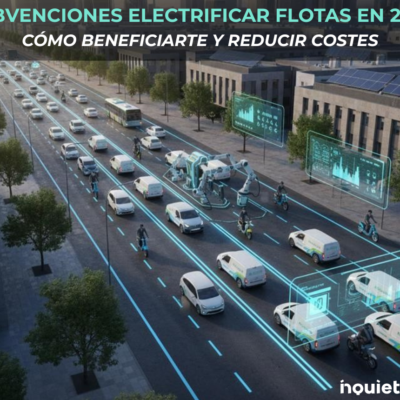The adoption of electric mobility in Spain is proving to be much more than just a passing trend. In addition to the increase in charging infrastructure and electric vehicle registrations, there is strong growth in the specialised talent in this sector.
Both the II AEDIVE Electric Mobility Yearbook and a recent LinkedIn report highlight how this transformation is driving demand for professionals with skills in sustainable mobility, positioning Spain as a country which is fully evolving towards a greener future.
LinkedIn’s boost to sustainable mobility talent
According to the LinkedIn report, the number of professionals in Spain with specific skills in electric vehicles has registered growth of 13.4%, bearing testimony to the fact that the country is aligning with the demands of the expanding market. Although this specialised talent still represents 3.35% of the total automotive sector, its rapid growth is a positive sign of the direction Spain is taking.
Compared to countries such as Germany, France or the United Kingdom, where this percentage ranges between 4.3% and 8.9%, Spain is still at a disadvantage. Internationally speaking though, Spain is amongst the countries with the highest year-on-year growth in specialised talent, only surpassed by emerging economies such as Indonesia, India and Mexico, and by the Netherlands.
Growth according to AEDIVE: infrastructure and adoption of EVs on the rise
Furthermore, the Second AEDIVE Electric Mobility Yearbook represents a major advance in terms of infrastructure and the adoption of electric vehicles. By the end of 2023, Spain had more than 30,350 public access charging points and the number of pure electric vehicles (BEV) registered reached 76,347 units, an impressive year-on-year increase of 46%.
These advances reflect a favourable environment for the growth of the sector, reinforcing the need to have a trained workforce to support and speed up this development. The expansion of infrastructure and electric vehicles paves the way for a faster and more effective transition to more sustainable mobility.
Specialised talent: a growing opportunity
Despite the ongoing challenges, data from LinkedIn and AEDIVE reveal that Spain is on an upward trajectory in terms of training talent specialised in electric mobility. The fact that SMEs have increased the hiring of professionals by 15.1% and large companies by 8.8%, demonstrates that both large corporations and small businesses are investing in sustainable mobility.
This growth indicates a positive trend towards the diversification and expansion of talent in the sector, laying the foundations for greater competitiveness and job opportunities in the short-term.
Growth in ‘green’ job offers
Some of the most optimistic data in LinkedIn’s report pertain to the boost in sustainability-related job offers. In 2023, these offers grew by 27%, representing 12.11% of total job opportunities in Spain.
This increase signals a widespread recognition of the importance of incorporating sustainable practices into daily operations. Professionals looking to work in sectors linked to sustainability are increasingly finding opportunities in key areas such as electric mobility, confirming that this sector is one of the pillars of the expanding green economy.
Spain, on the way towards leading electric mobility, but still facing challenges
Although Spain is moving forward rapidly, it still faces challenges if it is to be consolidated as a leader in electric mobility. The growth in charging infrastructure and the favourable environment for renewable energy position the country as a potential benchmark, but it is crucial to keep attracting investments and developing talent to sustain this progress.
The growth of talent in sustainable mobility is a clear sign that Spain is going in the right direction to achieve a greener and more competitive future. Data from AEDIVE and LinkedIn demonstrate a promising outlook, in which the country is not only moving forward with the adoption of electric vehicles and infrastructures, but it is also making sufficient investments in training to sustain this progress.
Although there are still some challenges to overcome, the path towards sustainability is paved with opportunities, and Spain has the potential to become a world leader in electric mobility and sustainability.




